April 27, 2024 | 10:37 GMT +7
April 27, 2024 | 10:37 GMT +7
Hotline: 0913.378.918
April 27, 2024 | 10:37 GMT +7
Hotline: 0913.378.918
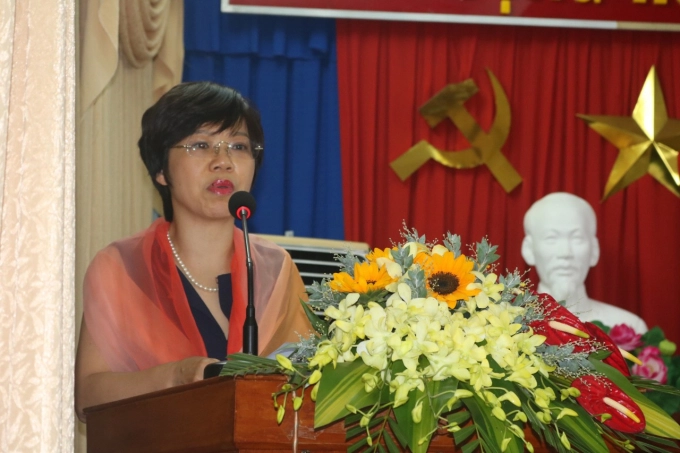
Ms. Nguyen Giang Thu, Deputy Director of Department of Science, Technology and Environment, said that the biotechnology program has achieved many positive results. Photo: KS.
The aquacultural industry has grossed outstanding results in the application of biotechnology and recognizes it as key for sustainable development of aquatic breeding, fishing, and food processing, a workshop has heard.
The workshop was held on November 5, in the central coast province of Khanh Hoa's Nha Trang City by the Department of Science, Technology, and Environment in coordination with the Institute of Aquaculture Research III.
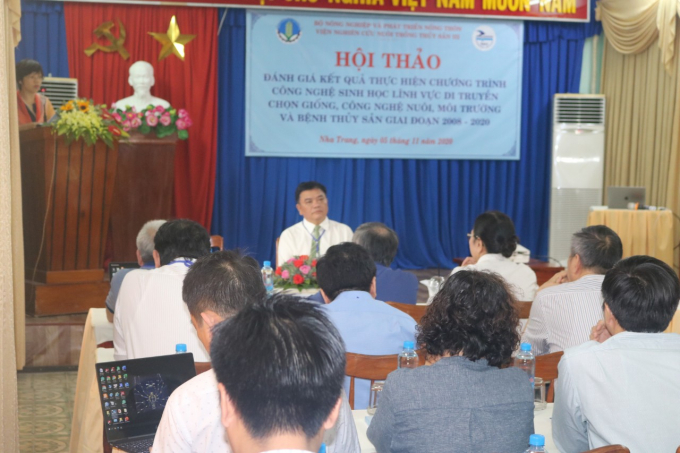
An overview of the workshop to evaluate the results of implementing the biotechnology program in the aquaculture sector. Photo: KS.
Participants at the event evaluated the implementing results of a government biotechnology program in genetic selection and breeding of technology as well as in environment and aquatic diseases in the period 2008-2020.
They all agreed on the importance of aquatic biotechnology saying it is regarded as a key for sustainable development of the breeding, fishing, and seafood production industries.
The workshop also stressed the importance of biotechnology in aquaculture saying it has helped boost the growth of the aquacultural species, increase the nutritional quality of aquatic products, and effectively manage natural aquatic resources.
In addition, biotechnology is also applied in many activities such as synthesis of reproductive stimulating hormones, transferring genes for the aquatic breeds, creating gene banks, and managing origin and quality of the breeds.
According to Ms. Nguyen Giang Thu, Deputy Director of Department of Science, Technology and Environment (Ministry of Agriculture and Rural Development), in the period 2008-20, the program on agricultural and fishery biotechnology has been focusing on 89 tasks of applying science and technology in the fisheries sector.
As part of the program, 89 subjects and seven experimental production projects have been conducted with a total cost of more than VND282 billion.
“Up to now, 71 tasks have been finished and accepted. The results have been positive in areas such as genetics and genetic selective breeding, conservation and exploitation of aquatic genetic resources, environmental management and aquatic diseases,” said Thu.
Aquatic breeding for commercial purposes has typically got a rapid high growth for catfish and seabass. Breeding of tiger shrimp and white leg shrimp has recorded good results with high growth and productivity in different geographical areas.
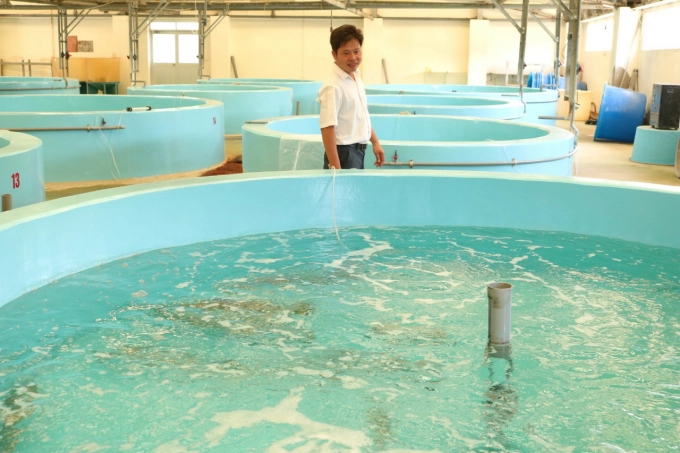
The Marine Research and Development Center under the Research Institute of Aquaculture III. Photo: KS.
In addition, a high-tech process has been built up for the production of different species of fish such as the female rainbow trout, seabass, red tilapia, and the blue lobster has also been successfully built up.
Vaccines have also been successfully completed for cobia, tilapia while other microbiological products have been provided for intensive shrimp and fish breeding, according to the official.
In 2008, The Prime Minister approved the program on the development and application of biotechnology in the fisheries sector to the year 2020 with the aim to promote the development and application of biotechnology to serve the industrialization and modernization of the country.
The main objectives and contents of the program had been focusing on applying aquatic biotechnology in the fields of genetic selection, breeding, environment and aquatic diseases.
Author: Kim So. Translated by Linh Nguyen. Edited by Duc Huy.
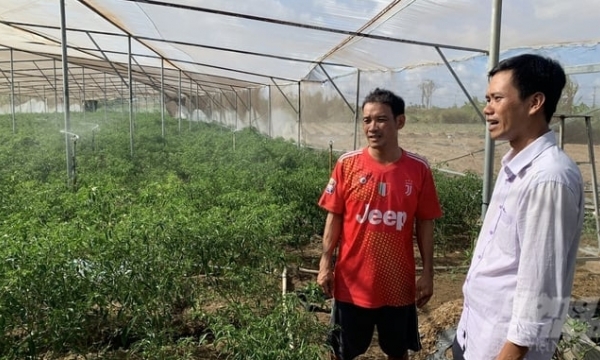
(VAN) The project, sponsored by the European Union, is implemented in Dong Thap, Kien Giang, and Tra Vinh provinces, with a total funding of 4.2 million Euros.
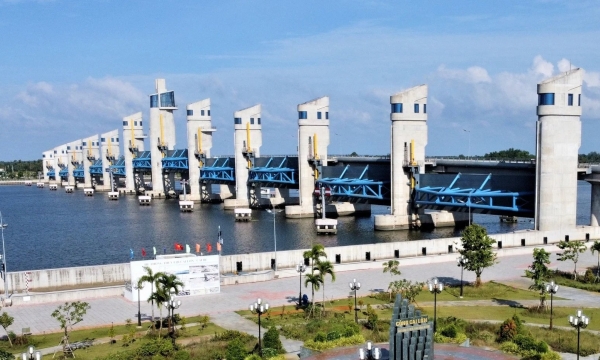
(VAN) In the heart of the Mekong Delta, the Cai Lon and Cai Be sluice gates act as guardians, halting the incursion of salty tides deep into the inland fields and managing freshwater resource distribution.
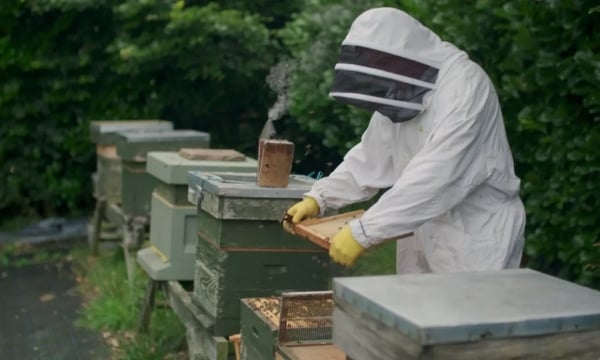
(VAN) The use of IoT, AI, and Blockchain to ensure product quality, streamline the manufacturing process, and distribute goods is a solution for long-term beekeeping development.
/2024/04/25/2756-2-192240_783.jpg)
(VAN) According to the Dong Thap Provincial People's Committee, smart villages are built from farmers' clubs, in line with the trend of developing the digital economy, circular economy, and green economy.
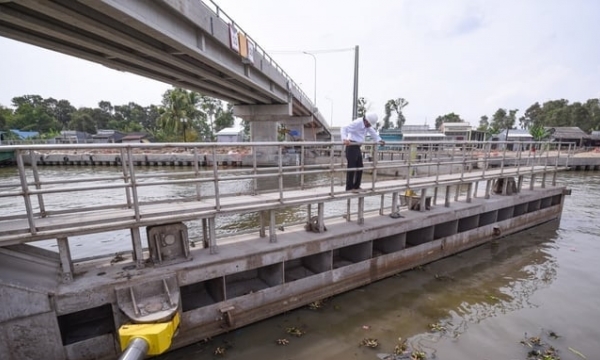
(VAN) Since its inception, the Ninh Quoi sluice gate in Bac Lieu province has significantly benefited the four Mekong Delta provinces during two severe dry seasons.
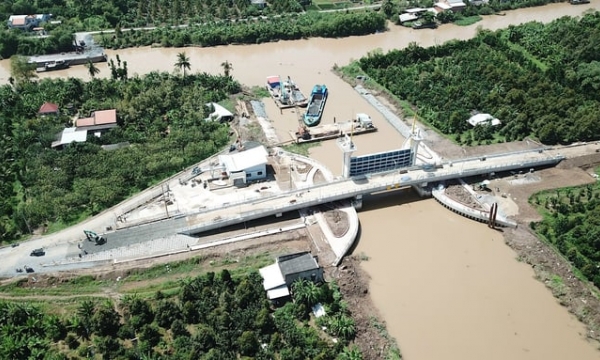
(VAN) During the dry season of 2024, the freshwater and saltwater control sluice projects invested in by the MARD in Ben Tre have significantly contributed to mitigating the impact of natural disasters in the region.
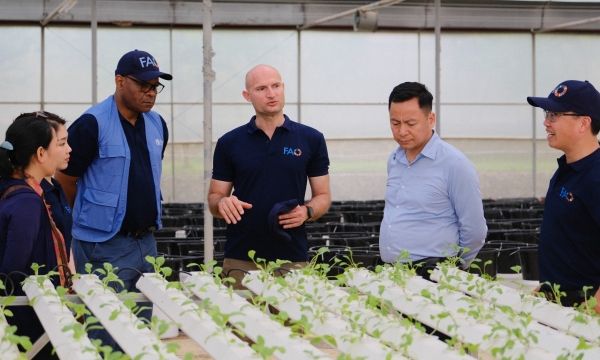
(VAN) The 'Smart Agriculture for the Future Generations' project is aiding 34 households in Moc Chau to renovate and optimize 35,420 square meters of greenhouse space.